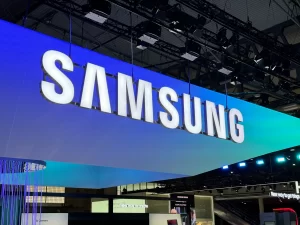Samsung’s second quarter sees record profits amid surging chip prices

Samsung Electronics announced a large increase in profitability, owing to increasing demand for memory chips used in artificial intelligence (AI) applications. The company’s second-quarter operational profit exploded over 15-fold from the previous year, hitting approximately $7.5 billion. This substantial surge is partly related to the recovery in the memory chip market, particularly due to the increasing requirement for computational capacity to support AI technologies such as generative AI applications.
In April-June, Samsung’s sales increased by roughly 23% to $53.6 billion due to increased demand for DRAM and NAND flash memory, which are critical components for AI applications.
Despite this impressive performance, Samsung faces tough rivals from SK Hynix in the high-bandwidth memory (HBM) category, which is critical for advanced AI applications. Samsung is now attempting to pass certification processes to supply its HBM chips to important clients such as NVIDIA.
“In the second half of 2024, AI servers are expected to take up a larger portion of the (memory) market as major cloud service providers and enterprises expand their AI investments,” the Korean company stated.
Operating profit increased to 10.4 trillion won ($7.52 billion) in April-June, from 670 billion won the previous year, according to Samsung. Despite its impressive performance, Samsung faces strong rivals in the high-bandwidth memory (HBM) industry. SK Hynix, a local competitor, has taken the lead in mass-producing the latest-generation HBM3E chips for big clients like NVIDIA. These chips are critical for the most advanced AI applications, highlighting the significance of this market category.
Samsung is now aiming to complete the certification procedure for their HBM chips so that they can provide them to NVIDIA. The company has formed a dedicated development team to advance its HBM technology.
Samsung’s financial results are encouraging, but the corporation confronts hurdles. Over 28,000 union members have scheduled strikes as a result of salary disagreements. The impact of these walkouts on Samsung’s operations, notably in its key chip manufacturing, remains uncertain.

